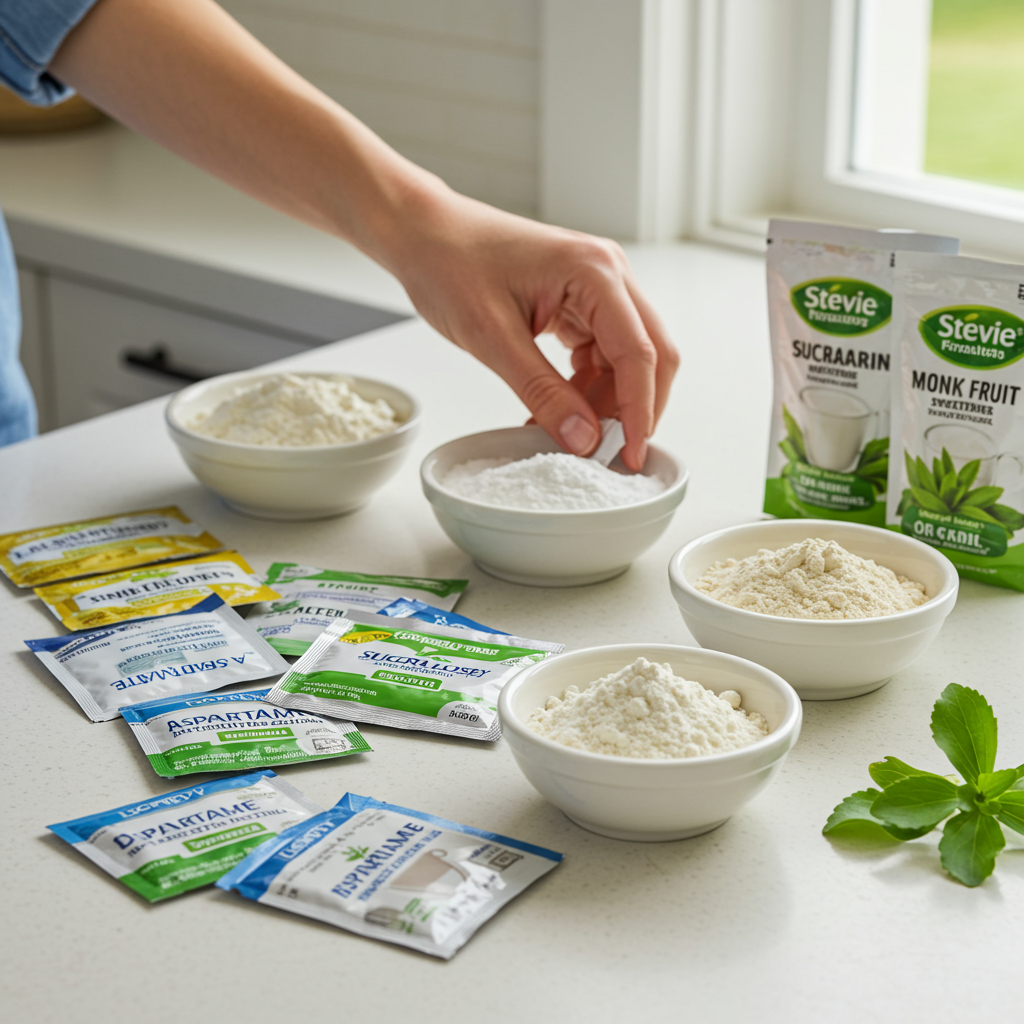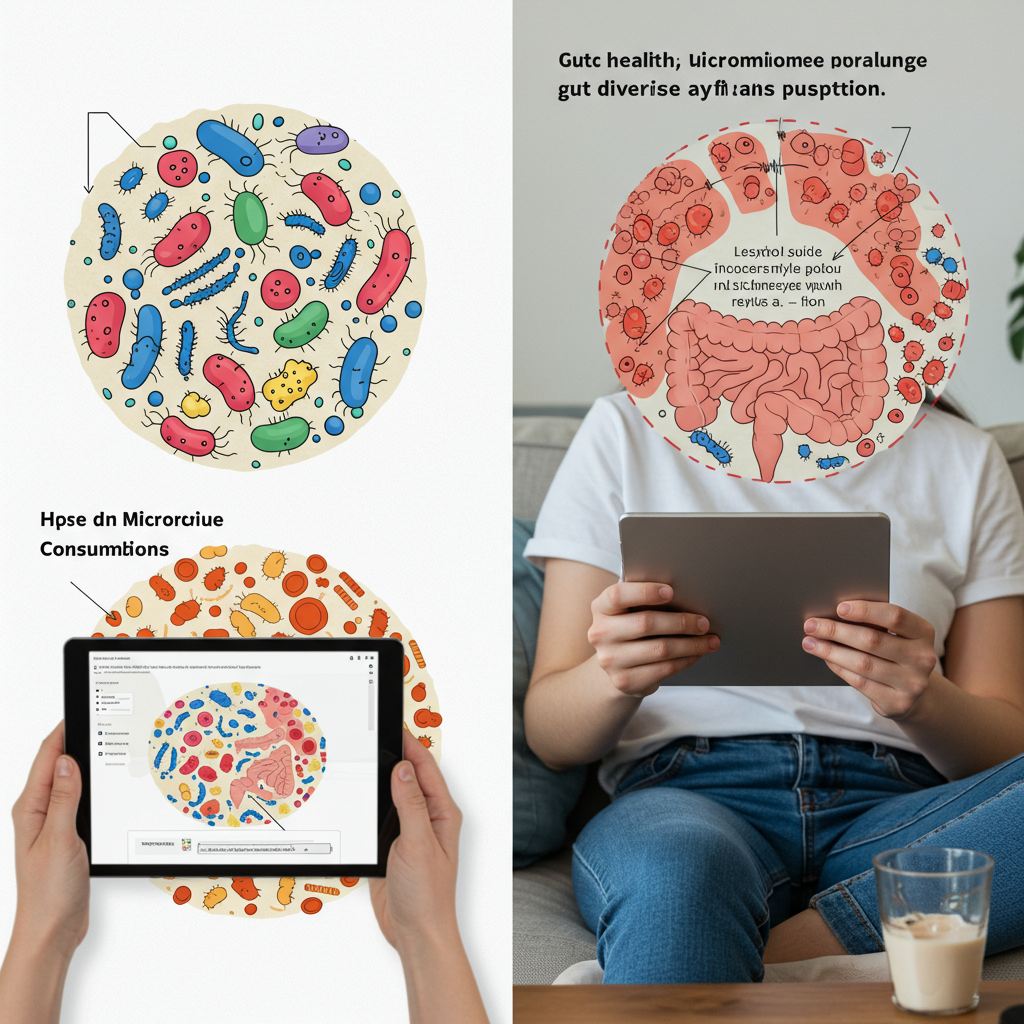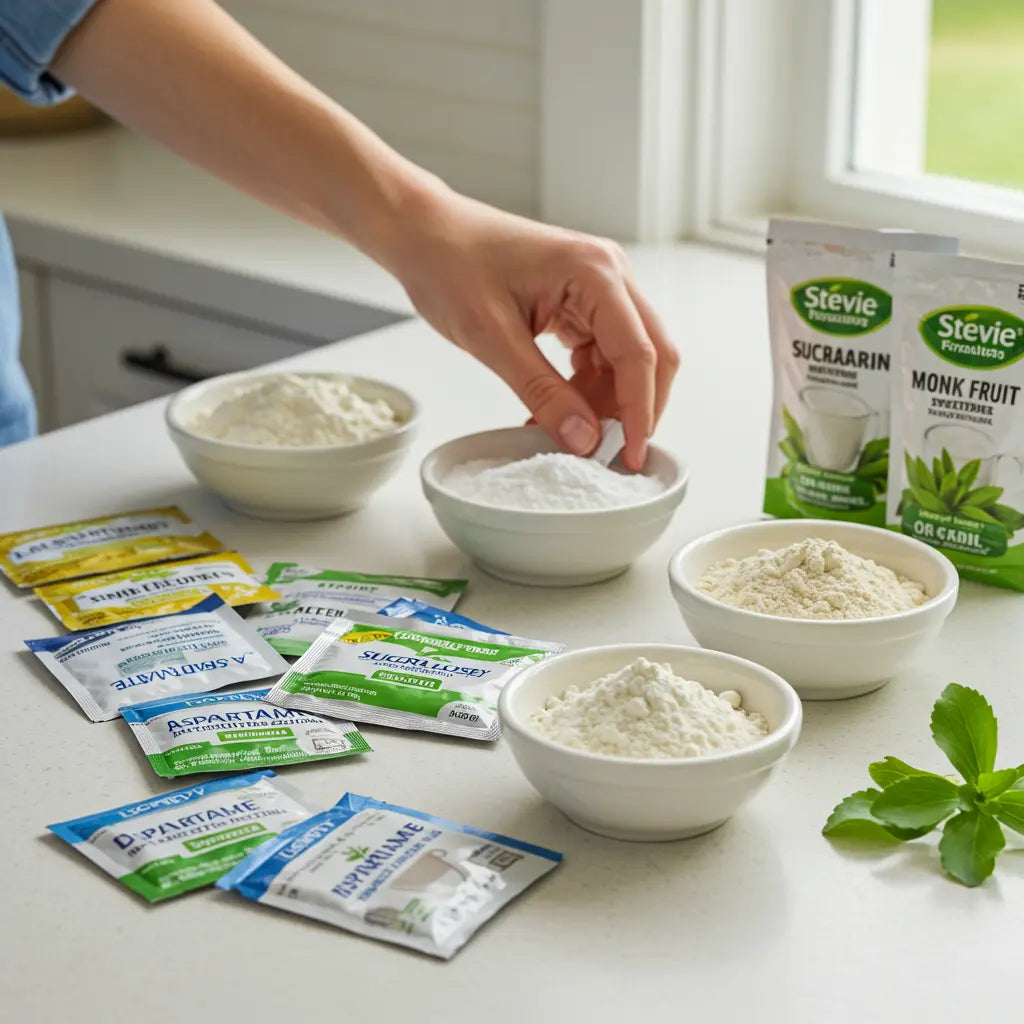Do Artificial Sweeteners Affect Blood Sugar? Separating Fact from Fiction
For those of us navigating the complex world of diabetes management or simply trying to reduce sugar intake, artificial sweeteners have long been presented as a guilt-free alternative. But do these sugar substitutes actually deliver on their promise of blood sugar neutrality? Let's dive into what the latest science tells us about artificial sweeteners and their effects on glucose metabolism.
The Sweet Deception: Not All Sweeteners Are Created Equal
Artificial sweeteners like aspartame, sucralose, saccharin, and stevia provide sweetness without the calories of sugar. Theoretically, since most contain no carbohydrates, they shouldn't raise blood glucose levels. However, emerging research suggests the relationship between these sweeteners and our metabolism is far more complex than initially thought.
Different sweeteners interact with our bodies in distinct ways:
- Aspartame is metabolized into phenylalanine, aspartic acid, and methanol, but doesn't typically cause immediate blood sugar spikes
- Sucralose passes through the body largely unmetabolized
- Stevia and monk fruit are plant-derived sweeteners that appear to have minimal direct impact on blood glucose
- Sugar alcohols like xylitol and erythritol are partially absorbed and can have minor effects on blood sugar
The key insight here is that while these substances may not directly raise blood glucose like table sugar does, their influence on our metabolic health extends beyond simple glycemic response.

The Microbiome Connection: The Hidden Metabolic Pathway
Perhaps the most fascinating recent discovery is how artificial sweeteners may indirectly affect blood sugar by altering our gut microbiome. Several groundbreaking studies have demonstrated that non-nutritive sweeteners can change the composition and function of intestinal bacteria.
In a 2014 study published in Nature, researchers found that saccharin consumption altered gut bacteria in ways that induced glucose intolerance in both mice and humans. Similar findings have emerged for other sweeteners.
The mechanism appears to work like this:
- Artificial sweeteners reach the colon largely undigested
- They interact with specific gut bacteria, potentially favoring less beneficial strains
- This altered microbiome may affect how we process glucose and secrete hormones involved in hunger and satiety
- Over time, these changes could contribute to glucose intolerance

This indirect pathway means that even though artificial sweeteners don't contain carbohydrates that directly raise blood sugar, they may still influence glucose metabolism through their effects on our microbiome.
The Cephalic Phase Response: How Sweet Taste Tricks Your Body
Another fascinating mechanism involves what scientists call the "cephalic phase response." When we taste something sweet, regardless of its caloric content, our bodies begin to prepare for sugar. This preparation includes the release of insulin in anticipation of rising blood glucose.
For some individuals, especially those with insulin resistance or diabetes, this false alarm might potentially contribute to:
- Increased hunger and cravings
- Disrupted incretin hormone responses
- Altered metabolic signaling pathways
The research in this area remains evolving, with some studies showing minimal effects while others suggest more significant metabolic consequences. Individual responses likely vary based on genetic factors, existing metabolic health, and patterns of sweetener consumption.
Practical Implications: Making Informed Choices
So what does this mean for those monitoring their blood glucose? Should artificial sweeteners be avoided entirely?
The answer, as with most things in nutrition science, is nuanced. Here's a balanced approach based on current evidence:
-
Monitor your individual response: Use continuous glucose monitoring or regular testing to see how specific sweeteners affect your personal glucose trends.
-
Consider context and quantity: Occasional use of artificial sweeteners likely poses minimal concerns for most people, while heavy daily consumption might have more significant effects.
-
Prioritize whole foods: Rather than focusing on what to remove from your diet, emphasize nutrient-dense whole foods that support metabolic health.
-
Be wary of "health halos": Just because a product contains artificial sweeteners doesn't make it healthy – many diet products still contain problematic ingredients.
-
Consider stevia and monk fruit: These natural alternatives appear to have the least concerning metabolic effects in current research.

The goal isn't to demonize artificial sweeteners but to understand that they aren't metabolically inert. They represent a tool that, like any tool, has appropriate uses and limitations.
For those managing diabetes or working to improve metabolic health, artificial sweeteners may still have a place in your dietary approach, but they deserve thoughtful consideration rather than uncritical acceptance as perfect sugar substitutes.
References
-
Suez J, Korem T, Zeevi D, et al. Artificial sweeteners induce glucose intolerance by altering the gut microbiota. Nature. 2014;514(7521):181-186. doi:10.1038/nature13793
-
Pepino MY. Metabolic effects of non-nutritive sweeteners. Physiol Behav. 2015;152(Pt B):450-455. doi:10.1016/j.physbeh.2015.06.024






